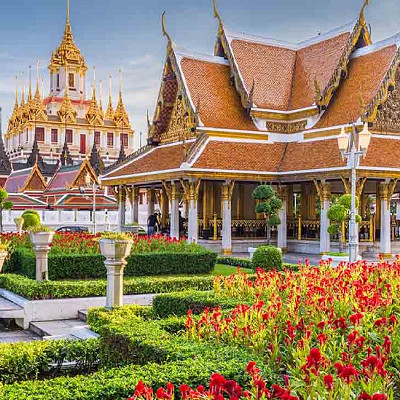
Legal issues

In recent years, there has been a growing number of attractive real estate offers in Thailand for Russian citizens, particularly in the apartment sector. Most of these properties are condominiums sold with "freehold" status, meaning full ownership of the apartment. Common areas, such as hallways and lobbies, are jointly owned by the residents.

The authorities of the Kingdom are preparing significant changes to real estate legislation. According to media reports, the Department of Lands in Thailand plans to present a bill to the Cabinet that would allow foreign property owners to extend the lease term on land to 99 years and increase the foreign ownership quota in condominiums to 75%.

One of the key steps in the immigration process to Thailand is obtaining a permanent residency visa, commonly known as Permanent Residency (PR). While this term is more familiar to Eastern Europeans, in Thailand, it refers to the same type of long-term authorization.
To qualify for PR in Thailand, one of the essential requirements is to reside continuously in the country for up to three years on a non-immigrant visa (NIV). There are several types of NIVs depending on the purpose of your stay. It’s important to note that not all non-immigrant visas are eligible for PR application. For example, the student visa (commonly obtained for enrolling in a university or language school) and the retirement visa (available to wealthy individuals over 50) do not allow for a PR application. Let’s explore the types of visas that are suitable for obtaining permanent residency in Thailand.

Thailand is one of the most affordable and attractive destinations for a comfortable holiday in 2024. One of the highlights is the "Phuket Sandbox" programme, which allows vaccinated tourists to travel freely around the Kingdom after staying in Phuket for just seven days. The No Quarantine policy has been simplified, eliminating the need for PCR tests upon entry. This change has provided a great opportunity for foreigners who were interested in purchasing real estate in Thailand but were previously unable to do so due to quarantine restrictions.

When purchasing real estate abroad, it's essential to understand all associated taxes in advance. Each country has its own property tax regulations. Investors who plan to rent out or resell properties should also gather information on income taxes.

When owning property in multiple countries, it's natural to wonder who will inherit it after your death and which country's laws will govern the inheritance process. In this article, we'll explain how property in Thailand is inherited.

Thailand is a popular destination for tourism and relocation. One of the long-term residence options available is the Thailand Elite Visa. This article explains what the Thailand Elite Visa is, who is eligible to apply, and how the application process works.

In 2024, foreigners will still be able to purchase real estate in Thailand, including condominiums with freehold status. This allows private ownership of individual apartments, while common areas are jointly owned by all residents. It’s important to remember that foreigners cannot own more than 49% of the total units in a condominium complex.



